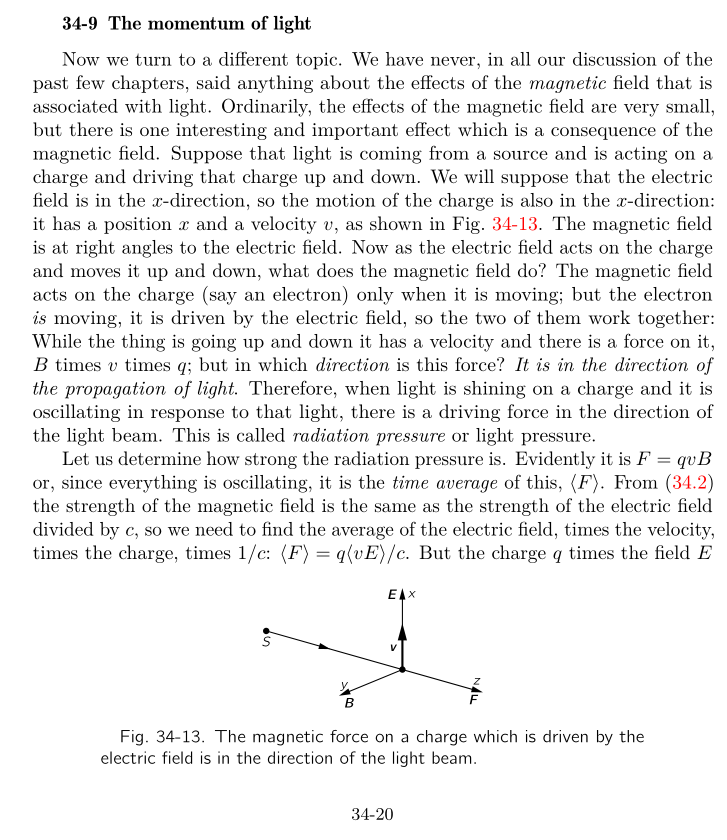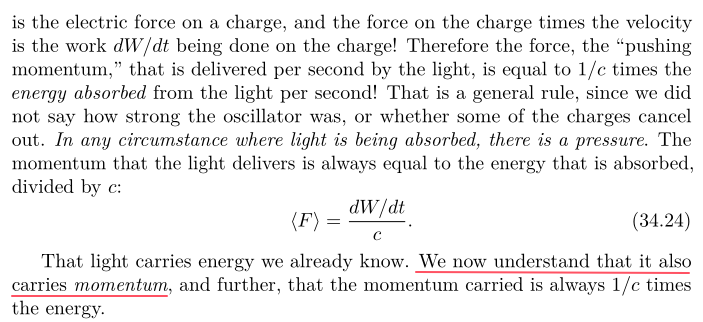Pictures below is from The Feynman Lectures on Physics. To show the light having momentum, he construct a model (Fig 34-13). But obviously, if there is not magnetic field, there will not be any momentum. In fact, I think the momentum of charge and the momentum of the magnetic field (if the magnetic can have momentum) are the same size, opposite. Therefore, the sum of them is zero. If so, the momentum of charge is not from the light. How to understand it? Or is there a more convincing explanation for the fact that light has momentum?
-
6$\begingroup$ "But obviously, if there is not magnetic field, there will not be any momentum." - but, there always is a magnetic field, otherwise you don't have any light - it's what light is made of. Self propagating self-inducing electric and magnetic fields. It's an electromagnetic wave. $\endgroup$– Filip MilovanovićCommented Dec 7 at 10:49
-
2$\begingroup$ Photon momentum is due to EM wave propagation forward, i.e. due to Poynting vector $\vec S$ denoted in diagram. In short,- everything what moves in space have linear momentum. $\endgroup$– Agnius VasiliauskasCommented Dec 7 at 10:56
-
$\begingroup$ @FilipMilovanović Thanks, I undstand it. From the perspective of momentum conservation, the momentum of the light wave should be reduced in Fig 34-13. If so, but the light doesn't slow down. From (34.24), seemly, the energy of the light will reduce. $\endgroup$– Enhao LanCommented Dec 7 at 11:26
1 Answer
The Feynman Lectures on Physics, Feynman demonstrates that light exerts pressure, implying it has momentum. In Feynman’s model, the charge interacts with the electromagnetic wave, and momentum is exchanged between the charge and the wave. The momentum transfer is what causes the motion of the charge. The absence of a magnetic field would mean no wave or no transfer of momentum. The momentum of the electromagnetic field is real and measurable. When the charge gains momentum, the electromagnetic field loses an equivalent amount of momentum. Momentum conservation is thus upheld, and the light's momentum is not negated.The charge's momentum isn’t “cancelled out” by the field's momentum. The electromagnetic field has its own momentum, which can interact with the charge. When light interacts with matter (such as charges), the transfer of momentum manifests as pressure or force, a direct indication of the light’s momentum.


